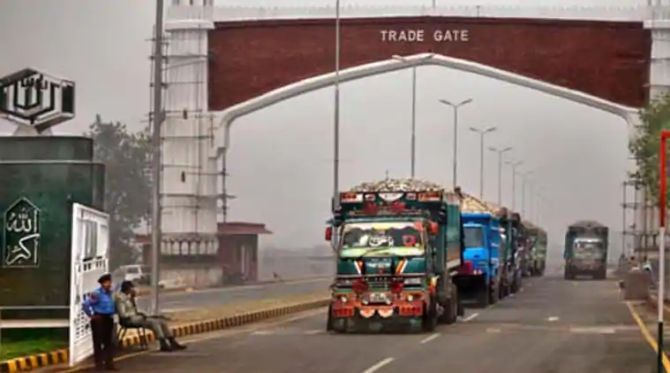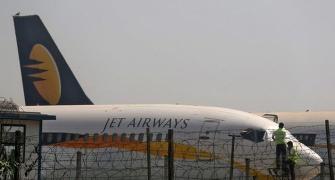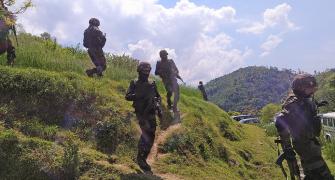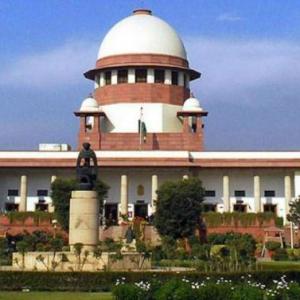The chances of the posts opening remain slim, with security agencies recently identifying 10 suspects who smuggled in weapons, narcotics and fake currency.

Buoyed by the promise of support by the state government, Kashmir trade bodies say they will continue to push for getting the trading posts along the Line of Control (LoC) opened.
India had on April 18 suspended cross-Loc trade.
But the chances of the posts opening remain slim, with security agencies on Thursday identifying 10 suspects who smuggled in weapons, narcotics and fake currency.
All the suspects - hailing from Kashmir and based in Pakistan - are part of Pakistan-based militant organisations, police said.
The Kashmir Chamber of Commerce and Industries (KCCI) said “thousands of livelihoods are at stake” till the posts don’t open.
Trade vital for local economy
The two trading posts across the LoC - located at Chakan-da-Bagh, in Poonch, and at Salamabad near Uri, in Baramulla - are unique, with locally produced commodities allowed to be exchanged four days a week via two trade facilitation centres.
Trade is based on barter system and zero tariffs.
The Salamabad centre is located on the crucial road running between Srinagar and Muzaffarabad - the headquarters of Pakistan-occupied Kashmir - and is an important part of local economy.
The mechanism, started in 2008, is only among four posts across India’s entire 15,000-km border, with the others being on the Myanmar border.
The government had cited repeated reports of trade being misused on a large scale.
“Trade has changed its character to mostly third-party trade and products from other regions, including foreign countries, are finding their way through this route.
"Unscrupulous and anti-national elements are using the route as a conduit for hawala money, drugs and weapons, under the garb of trade,” the home ministry said on April 18.
Repeated requests
Nasir Hameed Khan, senior vice-president of the KCCI, said: “We have demanded more security features multiple times from both the state government and the Centre so that such allegations do not arise.
"This includes installation of security cameras, full-body metal scanners and stringent verification procedures for traders.
“We have also repeatedly flagged infrastructural issues such as a lack of basic banking facilities, unavailability of communication infrastructure, and better customs counters, but nothing has been done.”
According to the state government, goods worth Rs 5,000 crore have been traded through the route till March 2018.
Procedural delays because of red tape have also dragged the process.
Larger border check posts, categorised as integrated check posts - such as Attari in Punjab or Petrapole in West Bengal - are managed by the Land Ports Authority of India.
But the four informal check posts, including the LoC, are jointly overseen by both the commerce and home ministries.
A fraction of total trade
The home ministry justified shutting down the LoC trade by claiming there was a high chance of it being misused in the aftermath of the commerce department revoking Pakistan’s Most Favored Nation (MFN) status after an attack in J&K’s Pulwama that claimed the lives of 40 Central Reserve Police Force personnel.
India’s total trade with Pakistan stood at $ 1.74 billion in the April-January period of FY19, compared to $ 2.41 billion in the previous year.
The move has hiked the customs duty by 200 per cent on Pakistani goods.
Despite Pakistan’s protests, commerce department officials said India is not even required to inform the World Trade Organisation about its decision.
India does not figure in the top 10 export destinations for Pakistani goods, but serves as a crucial channel for select goods such as leather hides and cheaper variants of fertilisers that are generally procured by importers at short notice.
On the other hand, any decision to stop exports to Pakistan is likely to affect the neighbouring country’s cotton industry which relies on cotton bales from India.
Pakistan has also come to depend upon cheaper varieties of Indian pharma products and machinery that are difficult to source from elsewhere.
Photograph: PTI Photo










